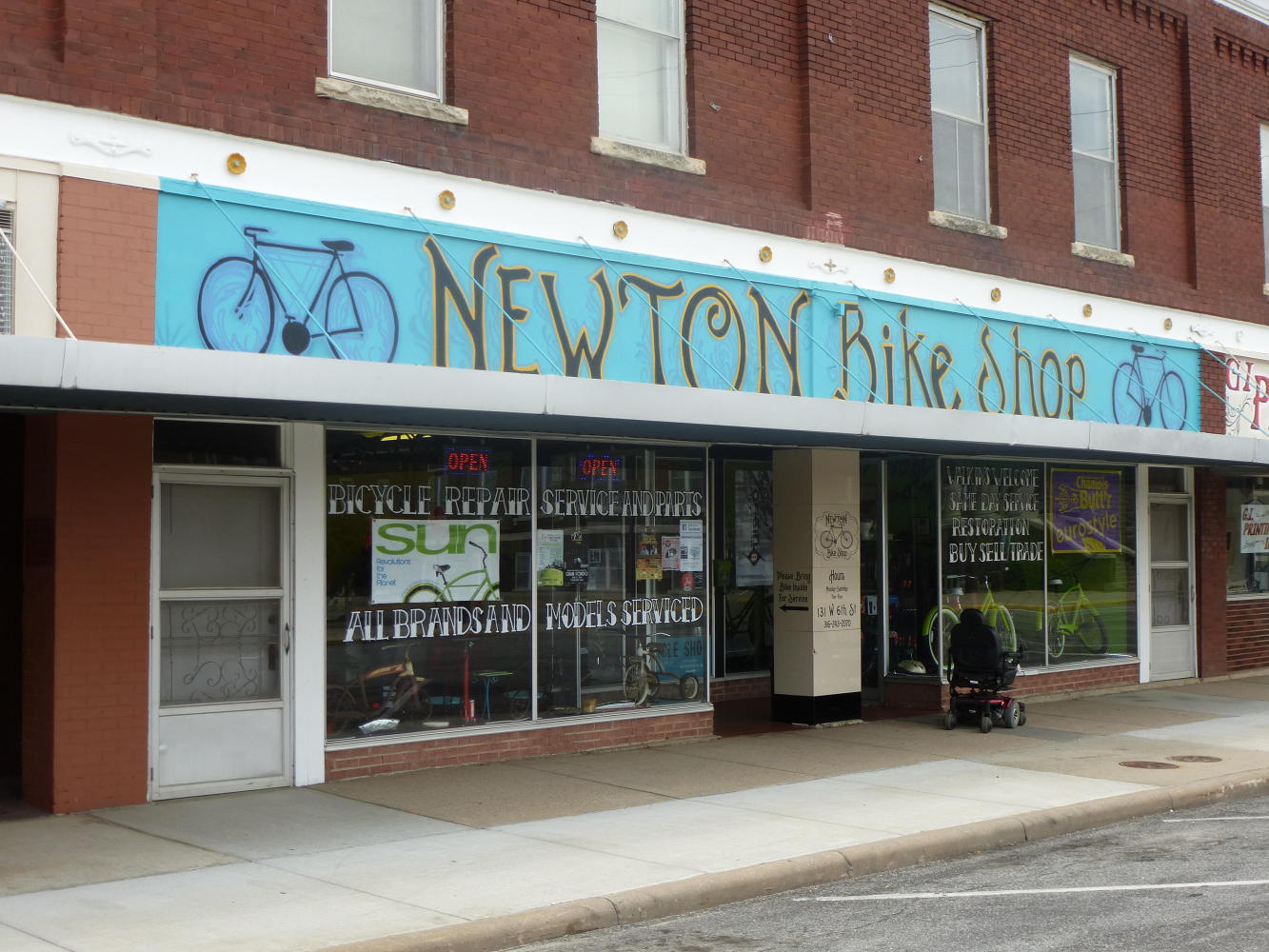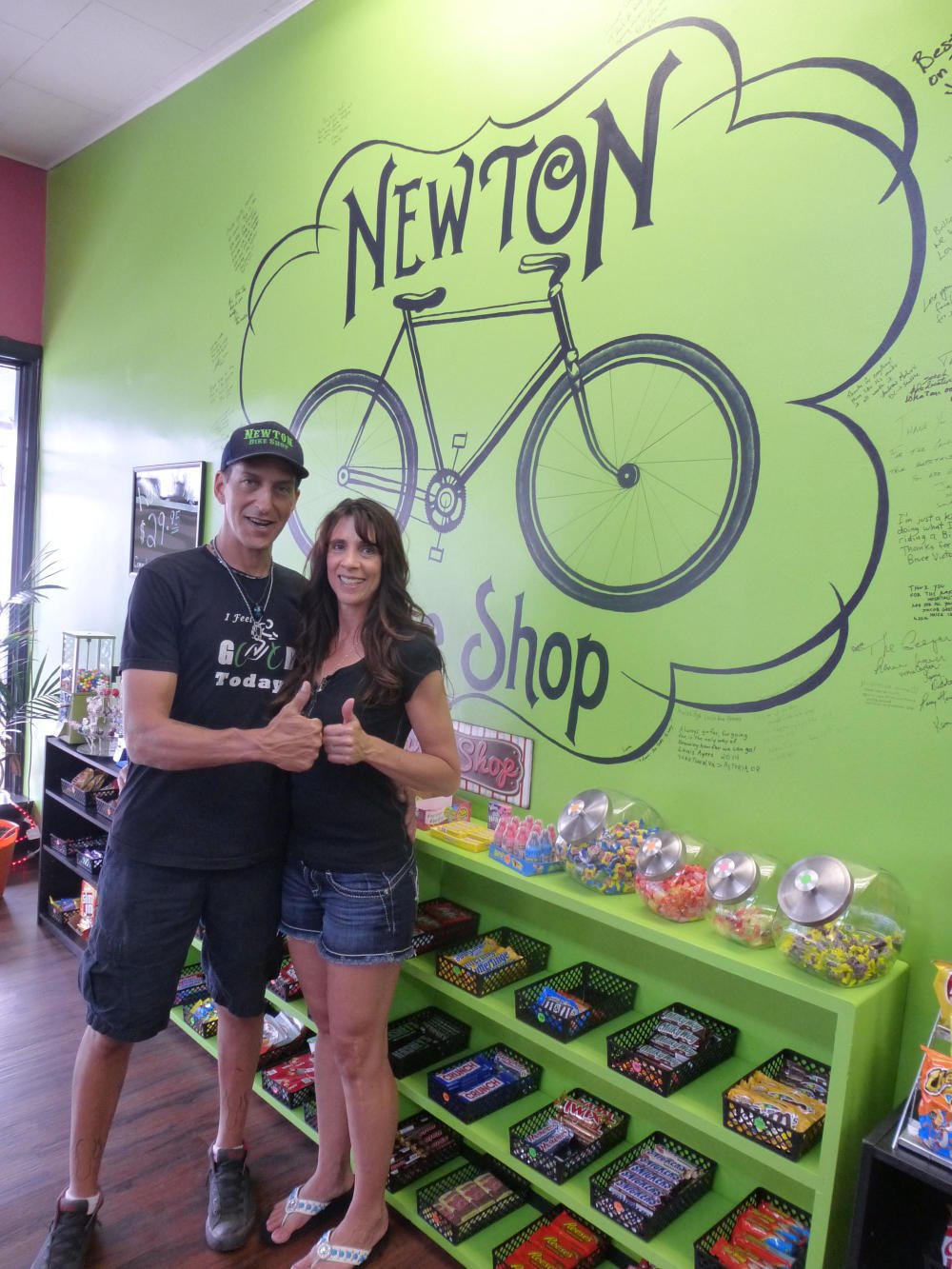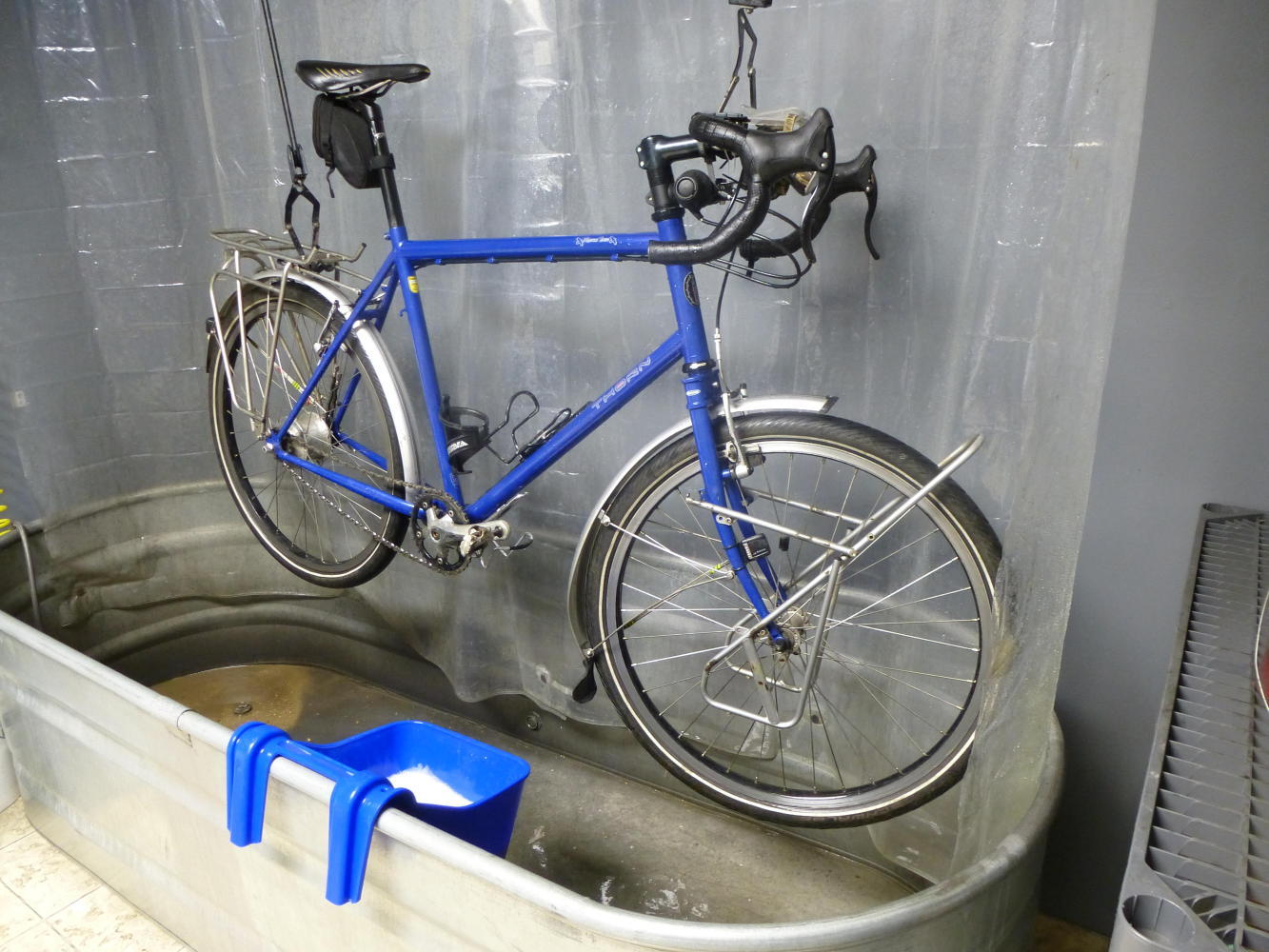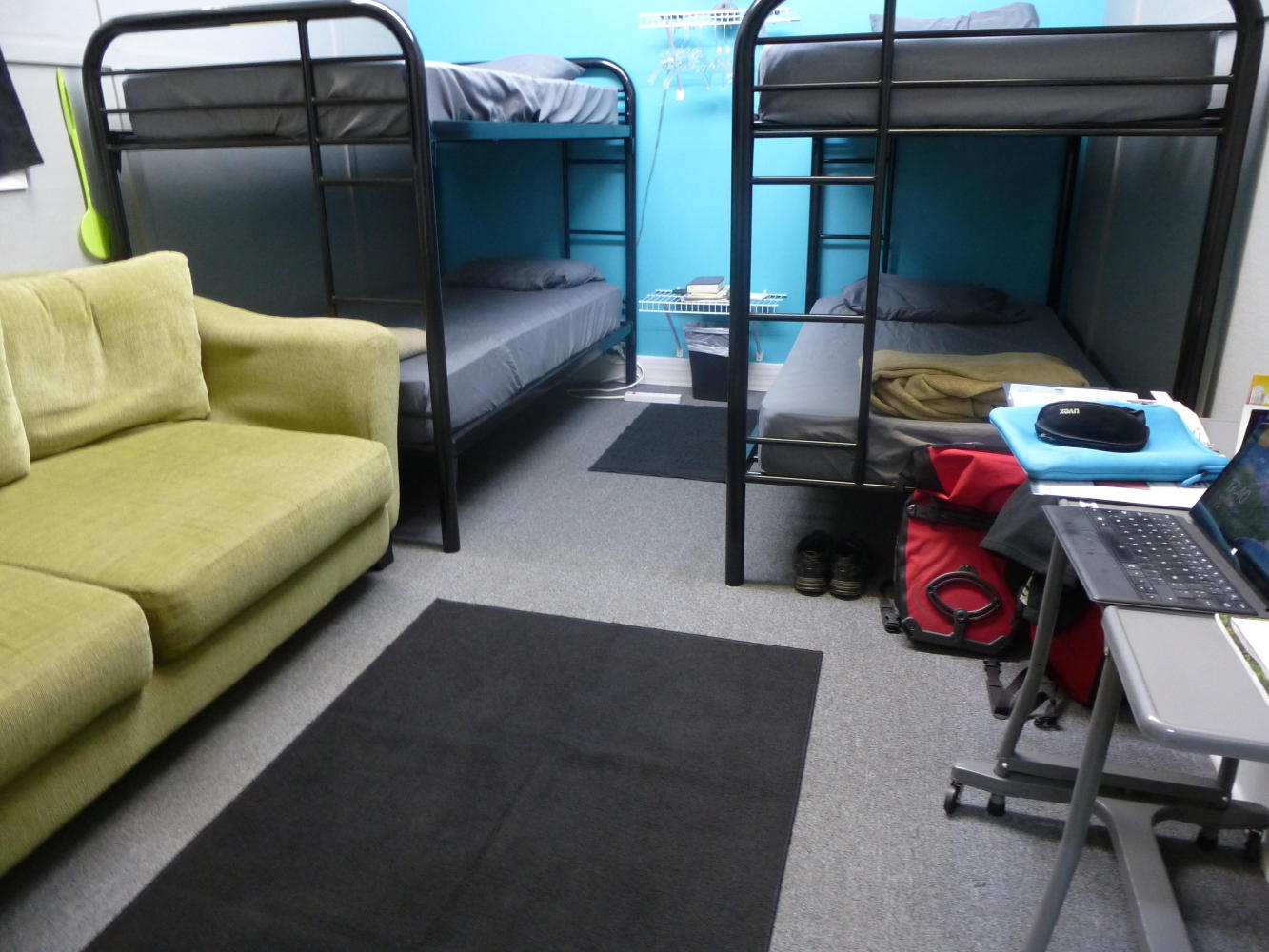June 5, 2014
James and Heather's tale

| Heart | 0 | Comment | 0 | Link |

| Heart | 0 | Comment | 0 | Link |
HE'S NOT OFTEN stuck for words, James Barringer. He's a tall man, tanned and leaned, vaguely reminiscent of Lance Armstrong. He and his wife, Heather, run the bike shop at Newton. Which wouldn't be so interesting were it not, first, that James is the son of a New York gangster and, second, that the shop is a free hostel for any passing bike rider. But even that's not enough because nothing is too much, from the free coffee and free use of the workshop to Heather's taking home dirty clothes to be laundered and returned next morning.
And all that could never come without a story.
"I'm from New York," James says. "I'm from the Bronx. My father was an Italian gangster, into everything, and my mother could see me going the same way. She didn't want that. Gangsters' wives get cheated on and they just put up with it. She didn't want me going down the same path, so she sent me here to Newton, to live with my grandmother.
"I came here and I saw a bike shop. I thought, wow! There was no bike shop in the block where I lived. Maybe on other blocks but I couldn't go there. I'd get beaten up. And I remember I came here, this deeply religious place, Mennonite community, and I had long hair that nobody had seen here. And they didn't like it.
"And I remember, in this bike shop, it was the start of anodising and they had a yellow chainring that I really wanted. So I went into the store to buy it and the owner looked at me and he said: 'Hey punk! I don't believe you've got the money for that. And I'll tell you something else: no kid here rides his bike down the sidewalk.' And he sent me away. And I was mad with anger, of course, and when I went outside, I spit on the window and walked off."
It was the start of the TransAmerica trail and the first riders were camping in the park. Many in town treated them as homeless wanderers, not understanding why anyone would travel day after day by bike. They were polite but reluctant to talk to them for fear they'd be asked for money.
"I met a Russian in the park. He told me about how he'd had to line up for toilet paper and porridge, and we talked for a long time. And those days, of course, everyone believed the Russians wanted to kill us and I went home and I told my grandmother that, no, no, I'd met a Russian and he'd been really nice.
"But I was only a kid and I didn't understand that he lived in America now, and I remember tearing him off lengths of toilet paper and taking them to him."
He laughs at the memory. It stayed with him, along with the puzzlement of why cyclists - people like himself - should be reduced to sleeping in the park or at the fire station. So when he left the video industry and, two years ago, started the bike shop with his wife, they wanted better for cyclists experienced and cyclists inexperienced. The town cold-shouldered him, upset that he was allowing strangers to stay the night "at the risk," James remembers, "of setting the place on fire. No matter that there are burgers bars here where the stoves are on 18 hours a day - they believed that four cyclists who'd ridden 80 miles were going to run riot.
"I had to fight court cases and I won. You just have to be a bulldog."
Their insurance company gave them a hard time but to this day no cyclist trusted to sleep in the shop and handed the keys has walked off with even the smallest item of stock.
"He's got a good nose for people who aren't real cyclists but transients," Heather says, "and there have been times when he's sent people away. But it's only happened rarely."
James never forgot the bike shop that called him a punk. "I set out never to criticise a customer or his bike, never to refuse - like a lot of shops do - to work on bikes from places like Walmart, where spares are never available. They're the bikes that people here can afford. A lot of people here are on low wages. And I have thousands of bikes down in the basement I can use for parts. I see people wheel their bikes in and they hesitate at the door and they apologise for their bikes and I say, 'Hey, no, bring it in! This is a bike shop!'"
He tells of a man who rides six miles a day to work.
"Just a cheap bike and it kept breaking down or getting flats and he'd bring it in and keep spending out to keep it going because he had no other way to get to work and he couldn't miss a day's pay. And eventually he said 'Hey, is there something wrong with this bike? Is there something better?'
"And I tell him that there is, and I take his bike in part-exchange, even what it is, a bike I could never re-sell. I never turn down a customer, never criticise, never comment. And they come back. Word gets around."
And what happened because of that? The other bike shop in town went out of business.
| Rate this entry's writing | Heart | 0 |
| Comment on this entry | Comment | 0 |

